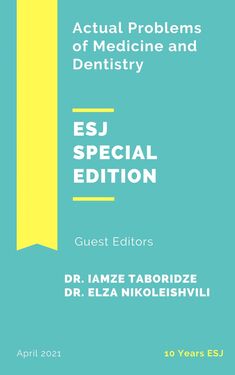Biomedical Research Regulation Challenges in Countries in Transition: Georgian Experience
Abstract
Regulation of biomedical research is a complex task, including ethical aspects subdivided into issues related to research on humans and laboratory animals. Involvement of human subjects is under the strict guidance of relevant regulatory documents common to most countries. Regarding animals, these aspects may vary significantly in nations with different socio political and economic factors of transition. From the other side, contemporary biomedical research suggests, amongst other, close collaboration of scientific and educational institutions from different countries. In Georgia-like countries in transition, this process requires significant amendments to the legislation of biomedical research, as international state-of-the-art regulations require, on one hand, compliance with proper guidelines for use of laboratory animals involved in the research process, and on the other — relevant vivarium infrastructure and qualified staff. The current study aimed to collect opinions and experiences from the corresponding Georgian institutions and identify and propose step-by-step solutions to overcome existing challenges. To achieve the goal, we compiled a questionnaire about the management, conduction, and monitoring of biomedical research and sent it to relevant organizations. Questions concerning an institutional policy on the use of laboratory animals, staff qualifications, and infrastructure of units for animal housing/breeding (vivariums or similar), were included as well. The survey revealed the major gaps, among which yet absent national legislative framework appeared of greatest importance, as it allows most institutions’ authorities not to perceive the need to adopt accepted standards at their level. This leads to a decreased credibility of the research, and forces scientists to use international regulations that are quite challenging because of the current state of scientific infrastructure in countries in transition. To overcome the identified problems, we have proposed several solutions, such as a universal package of institutional regulations and a draft amendment to the existing legislation to form a national policy on animal welfare.
Downloads
PlumX Statistics
Copyright (c) 2021 Karen Mulkijanyan, Levani Chitiashvili, Marine Ramishvili, Nino Megrelishvili

This work is licensed under a Creative Commons Attribution-NonCommercial-NoDerivatives 4.0 International License.








